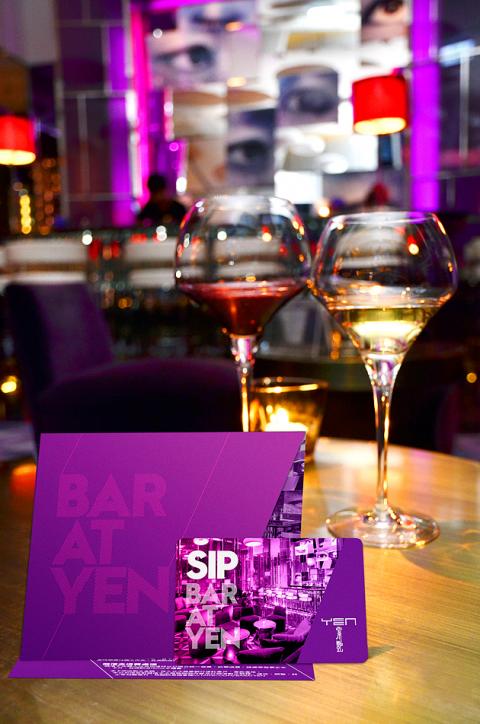W Taipei’s Yen Bar has introduced the Sip wine tasting card, which gives patrons an easy and affordable way to sample wines from leading vineyards. The Sip room, which has a view of Taipei 101, is home to Yen’s new Enomatic wine serving system, a machine that allows bottles of wine to be opened and protected from oxidation.
Guests use their pre-paid Sip card to dispense wine from the Enomatic, with amounts ranging from a 10ml taste to a full 150ml glass. The machine can hold up to 12 wines at a time. The selection will change each month. August’s list features libations from vineyards in France, Spain, Italy and Chile. Highlights include Domaine Chanson’s Beaune 1er Cru Clos des Mouches and Chateau La Lagune’s Moulin La Lagune from France and the Bordeaux-style Sassicaia, one of Italy’s most renowned wines.
Yen Bar is located on the top floor of W Taipei and features sweeping views of the city. In addition to the Enomatic machine’s offerings, the bar also serves more than 80 kinds of whisky, 90 cocktails and 100 kinds of wine, along with tapas inspired by Asian cuisine.

Photo Courtesy of W Taipei
The Sip tasting card is priced at NT$500 and up, and prices for each wine start at NT$70 for 10ml. Call (02) 7703-8887 or visit www.wtaipei.com/baratyen for more information.

Taiwan has next to no political engagement in Myanmar, either with the ruling military junta nor the dozens of armed groups who’ve in the last five years taken over around two-thirds of the nation’s territory in a sprawling, patchwork civil war. But early last month, the leader of one relatively minor Burmese revolutionary faction, General Nerdah Bomya, who is also an alleged war criminal, made a low key visit to Taipei, where he met with a member of President William Lai’s (賴清德) staff, a retired Taiwanese military official and several academics. “I feel like Taiwan is a good example of

March 2 to March 8 Gunfire rang out along the shore of the frontline island of Lieyu (烈嶼) on a foggy afternoon on March 7, 1987. By the time it was over, about 20 unarmed Vietnamese refugees — men, women, elderly and children — were dead. They were hastily buried, followed by decades of silence. Months later, opposition politicians and journalists tried to uncover what had happened, but conflicting accounts only deepened the confusion. One version suggested that government troops had mistakenly killed their own operatives attempting to return home from Vietnam. The military maintained that the

Jacques Poissant’s suffering stopped the day he asked his daughter if it would be “cowardly to ask to be helped to die.” The retired Canadian insurance adviser was 93, and “was wasting away” after a long battle with prostate cancer. “He no longer had any zest for life,” Josee Poissant said. Last year her mother made the same choice at 96 when she realized she would not be getting out of hospital. She died surrounded by her children and their partners listening to the music she loved. “She was at peace. She sang until she went to sleep.” Josee Poissant remembers it as a beautiful

Before the last section of the round-the-island railway was electrified, one old blue train still chugged back and forth between Pingtung County’s Fangliao (枋寮) and Taitung (台東) stations once a day. It was so slow, was so hot (it had no air conditioning) and covered such a short distance, that the low fare still failed to attract many riders. This relic of the past was finally retired when the South Link Line was fully electrified on Dec. 23, 2020. A wave of nostalgia surrounded the termination of the Ordinary Train service, as these train carriages had been in use for decades